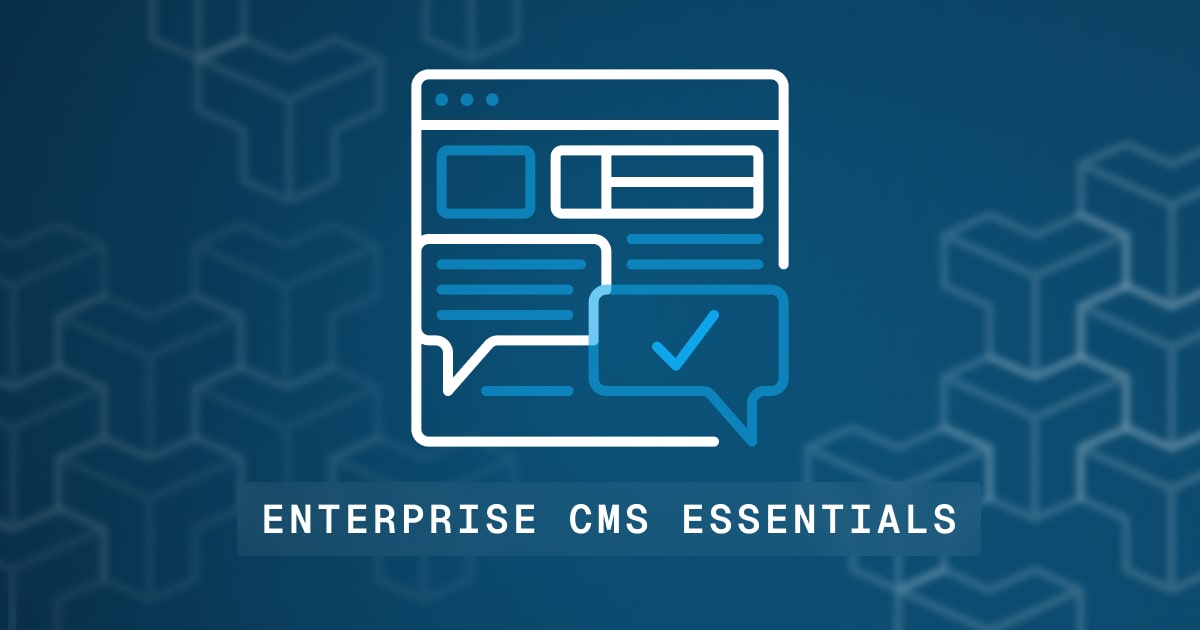When choosing a content management system (CMS), enterprise organizations need to focus on several key factors to ensure it meets their unique needs. A CMS goes beyond just managing content; it has to support the scale, security, and flexibility that large operations require. Scalability is crucial, allowing the CMS to handle growing amounts of content, users, and traffic without slowing down. Security matters too, with features that protect sensitive information and keep things compliant with industry regulations.
Along with scalability and security, a good CMS for enterprises should offer customization and integration options. Every organization has its own processes that may need a tailored solution, so flexibility is essential. Plus, it should easily integrate with other systems like CRM, ERP, and marketing platforms to streamline workflows and boost efficiency. These qualities, along with support for managing multiple sites and languages and user-friendly interfaces, are what make a CMS truly effective for enterprise organizations in their digital journeys.
We selected the top characteristics of an enterprise CMS that our customers considered most important in their search for the best platform.
Scalability
Enterprise organizations need a content management system (CMS) that can effectively manage large volumes of content, users, and traffic without sacrificing performance. The CMS must be tailored for large-scale operations and designed to grow alongside the business as its content and user base expand. Scalability is crucial, ensuring that as the organization adds more sites, content, or users, the CMS remains stable and responsive.
Security
Security is paramount for enterprises handling sensitive information and adhering to various regulations. An effective Content Management System (CMS) must integrate advanced security features, such as role-based access control, strong encryption, secure authentication methods, and regular security updates. Additionally, the CMS should support compliance with industry-specific standards like GDPR, HIPAA, and PCI-DSS, ensuring data protection and fulfillment of legal obligations. This holistic approach not only safeguards information but also bolsters the organization's overall reliability and trustworthiness.
Customization and Flexibility
Businesses have unique needs and processes, so they often need a CMS that can be customized extensively. This means being able to create custom workflows, integrate with their own systems or third-party tools, and add functionality through plugins or APIs. A flexible CMS lets organizations tweak the platform to fit their specific needs, helping them reach their business goals more effectively.
Integration Capabilities
For an enterprise, a CMS cannot function in isolation; it must seamlessly integrate with other enterprise systems, including CRM, ERP, marketing automation, and analytics platforms. These integrations facilitate smooth data flow between systems, providing a unified view of business operations and enhancing overall efficiency. A CMS equipped with robust integration capabilities can streamline workflows and empower the organization to maximize its existing technology stack.
Multi-site and Multi-language Support
Global enterprises frequently oversee multiple websites and serve audiences across various languages. A CMS that facilitates multi-site management and supports multilingual content from a single instance streamlines this process, allowing for centralized control alongside localized customization. This functionality is crucial for upholding brand consistency while addressing the diverse demands of international markets.
User-Friendly Interface
A CMS should provide an intuitive and user-friendly interface that enables both technical and non-technical users to efficiently create, edit, and manage content. A streamlined interface lessens the learning curve and reduces the need for extensive training, empowering content creators to concentrate on producing high-quality material rather than struggling with complex systems. This ease of use is vital for sustaining productivity and fostering widespread adoption across the organization.
Performance and Reliability
High performance and reliability are essential for enterprise organizations exploring new CMS platforms. These systems must deliver fast load times, manage high traffic volumes, and ensure consistent availability to keep the organization’s digital presence accessible to users at all times. Any downtime can result in substantial revenue loss and harm to the organization’s reputation, making performance optimization and dependable uptime vital for a successful CMS.
Content Governance and Workflow Management
Effectively managing content within an enterprise requires collaboration among various stakeholders, each contributing unique roles and responsibilities. A comprehensive CMS should offer strong content governance capabilities, such as customizable workflows, version control, and audit trails. These features guarantee that content undergoes thorough review and approval by the relevant parties prior to publication, thereby upholding quality and ensuring compliance with organizational standards.
Support and Documentation
Support and documentation are essential for maximizing the value of a CMS. Organizations need reliable customer support to address issues quickly. Detailed documentation helps users understand the platform’s features, leading to smoother implementation and management. This framework is important for ensuring that the CMS meets the organization’s needs and is used effectively.
Analytics and Reporting
Integrated analytics and reporting tools enable organizations to monitor the performance of their content and digital assets, providing insights into user behavior, engagement, and return on investment (ROI). These tools support data-driven decision-making, allowing enterprises to improve their content strategies and enhance business outcomes. A CMS with strong analytics capabilities can be a key asset for organizations seeking a competitive advantage in their digital initiatives.

